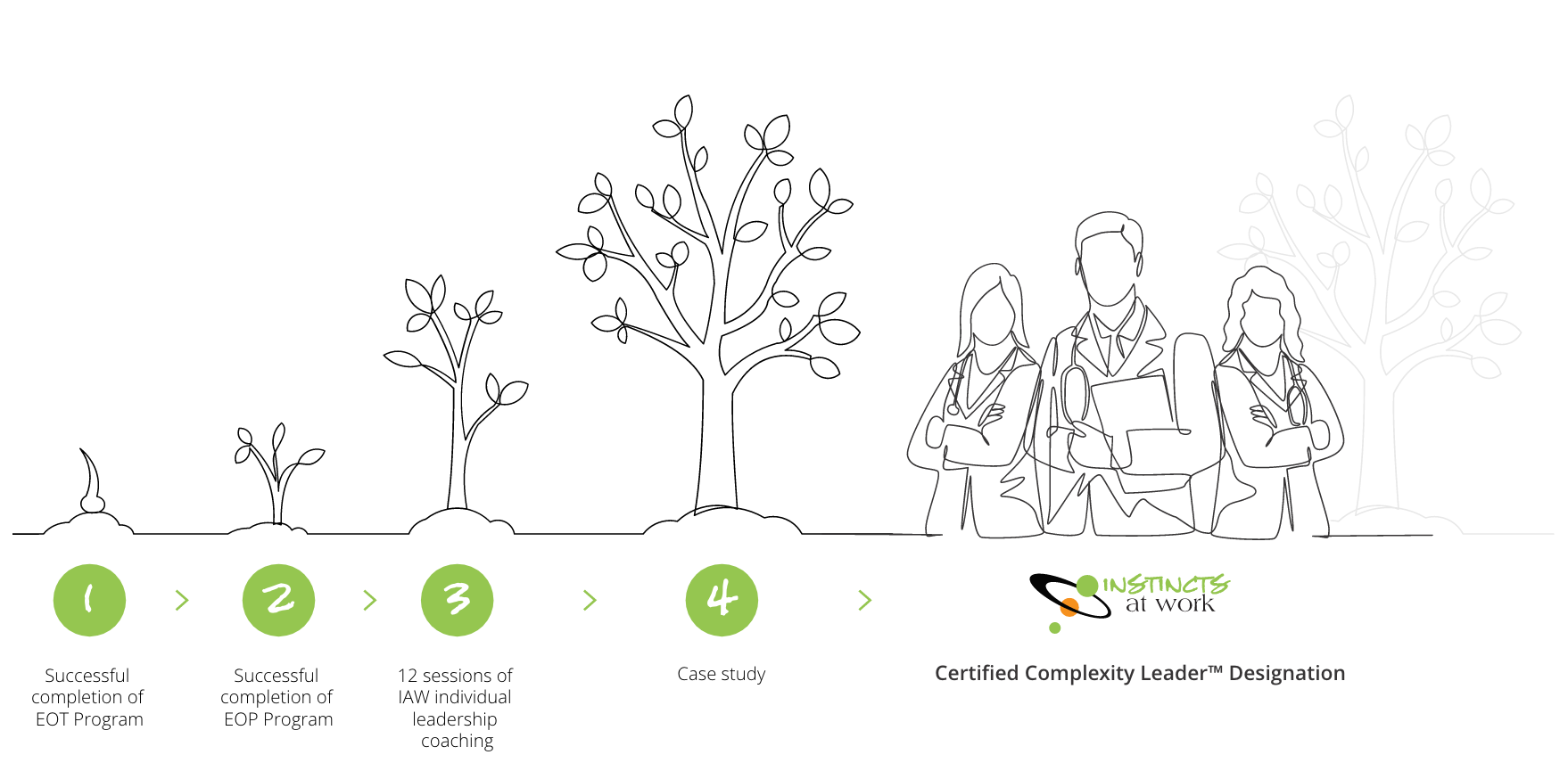During the past year we’ve fielded two kinds of phone calls from healthcare leaders in Ontario:



To lead effectively in the increasingly demanding circumstances that we face, leaders must develop themselves to a level of person, psychological, mental and interpersonal fitness.
Many of you are thinking of the current times as if they are an elastic band. You believe that you can stretch yourselves during hard times and then rebound to a simpler normal. But the elastic band metaphor doesn’t work this time. We now see people who are literally snapping before the opportunity for rebound arrives.
Though a vaccine offers some hope of stabilizing the immediate threat, the pandemic has made it clear that we cannot return to thinking the world operates with certainty and predictability. We’re now irrevocably aware of the number of interacting variables and can see that the world doesn’t work the way we thought. So how we act in this new world needs to change.
It is time for a new metaphor – a metaphor of growth. Where, given the fertile soil that a well-developed complexity leader can provide, we can all grow, progress and become sturdier as a result of the challenges we face.
Through the leaders from the first type of phone calls, we are sensing the possibility of a culture shift in healthcare that could be of the same magnitude as the workplace safety movement that swept through the province decades ago. We see the first shouts of emerging resilient cultures where leaders and their teams bounce back from the pressure of challenges. But we also see more than resilience. We see agility in workers who are led in ways that allow them to grow, adapt and innovate regardless of the circumstances, sometimes because of them.
To be an effective leader when your conditions change suddenly requires a sophisticated set of skills that allow you to manage your threat response, and then, amidst the confusion, lead and train others in acquiring those same skills.
Being thrust into chaos as healthcare leaders have throughout the pandemic without preparation or training for leading in complexity, creates massive uncertainty in the unprepared mind. This lack of predictability can set off many internal warning signals and ultimately create a compulsive need to seek certainty when none is available. Attempts to predict in a volatile, unpredictable situation can result in an emotional spiral with burnout as its end state. The energy spent looking for certainty and never finding it eats up the reserves of those leaders not yet equipped with alternative strategies. This reflective and repeated attempt to seek answers that don’t exist needs to be redirected.
It’s been hard to pinpoint what makes a leader resilient until now. But leadership researchers now understand how much psychological safety contributes to workspace performance. It has become clear that the number one job for leaders in times of crisis needs to be stabilizing teams mentally and psychologically to reduce burnout even in the most volatile times.
One leader of an Ontario Emergency Response Table confessed that she is relying heavily on colleagues who have developed Complexity Leadership skills. She confessed:
Out of our commitment to developing resilience in healthcare leaders during these most trying of times, we are launching our Certified Complexity Leadership (CCL) program.
Our complexity Leadership curriculum gives leaders the tools, skills, habits and competencies they need to maintain focus, clarity, and performance when there are too many variables, too little control, and uncertainties far and wide. In addition to developing essential skills for leading in uncertain times, leaders also form a community of support to experiment, practice and share learning about these new ways of working. The CCL program is leadership training for today.

